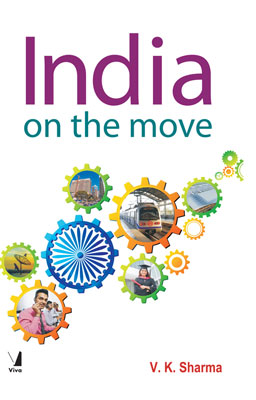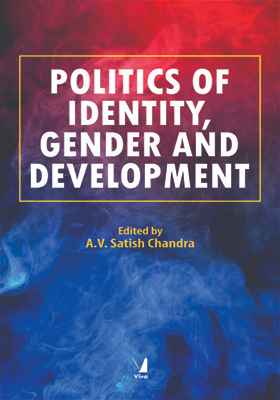India on the Move
India on the Move
₹445.50 ₹495.00 Save: ₹49.50 (10%)
Go to cartISBN: 9788130929507
Bind: Hardbound
Year: 2015
Pages: 152
Size: 153 x 229 mm
Publisher: Viva Books Originals
Sales Territory: Worldwide
Description:
The attraction that the Chinese pace of progress holds for our young elite is understandable. The fascination is so great that they are quite willing to sacrifice our liberal democratic system. Progress today at any cost, without care for tomorrow can be a highly dangerous pursuit. Tomorrow, possibly can turn out to be horrendous, as the case studies of many authoritarian systems reveal. We do not have to delve in history of many centuries past, but look at only the twentieth century The rise of the Third Reich in Germany started with a great promise, but ended in failure at a massive cost in human life and destruction of many cities and towns.
The Cultural Revolution in China, it is known, cost lakhs of lives. Fast decision making by a strong personality led to the breakup of Pakistan. All this can happen in the absence of some built-in checks and balances which democracy provides.
This book is a fact-based look back at our six-plus decades of democratic journey In spite of a slower and messier movement of democratic working, our scorecard is not something to be laughed at. It is something to be proud of. Take a peep. You have the right to disagree.
The aim of the book is to apprise my young friends, who did not have the opportunity to grow up in the postpartition era and experience the kind of difficult and a very challenging journey traversed, about where we started from and where we are today, irrespective of the parties in power. On hindsight it can always be said that what has been achieved should have been achieved earlier. That's fine - that is how we would learn as a nation and improve It is only six decades ago that we stepped out of near two centuries of colonial rule by the British. As part of making sense of contemporary India, it should be a profitable exercise to have a brief look at pre-colonial India, which is the subject of the first chapter and it should be very interesting to scan the many clever empire building strategies employed by the British for their hegemony of a large part of the world for a considerable period of time, which is unique.
Target Audience:
People Interested in History and Political Science.
Contents:
Chapter 1: Introduction
Chapter 2: Some Interesting Snippets of Pre-Colonial History of India
Chapter 3: Empire Building Strategies Adopted by the British
Chapter 4: Our Economic Performance • Our Economic Growth Rate • Our Foreign Exchange Reserves • Our Fiscal Deficit • Finished Steel Output • Power Supply in India
Chapter 5: Some Outcomes • Impact on Poverty • Per-capita Annual Growth in Incomes of Various Sections of Population in India • Impact on the Middle Class • A Silent Transformation • My Village • On the Move • Some Other Interesting Indicators • TATA • The Biggest Manufacturer in Britain • Inter-Face with Government Agencies
Chapter 6: Our Population • Average Life Expectancy • Our Demographic Dividend • Community Based Breakup of Population
Chapter 7: Revival of Socialistic Thinking • A Danger Signal for India • My Dozen Years of Work Experience in Public Sector • Why did the Economy of USSR Collapse? • Some Conclusions that Stand Out
Chapter 8: India and China • A Journey begun Together
Chapter 9: Our Corruption Problem • What are the Contributory Factors? • Historical Perspective • Some Conclusions
Chapter 10: We the People
Chapter 11: Our Education System
Chapter 12: Our Democracy
Chapter 13: The Way Forward • We the People • Our Corruption Problem • Our State • Our Land Reforms and Land Productivity • Do not Spread Gloom • Intra-Generation and Inter-Generation Equity
Chapter 14: In Conclusion
About the Author:
Virendra Kumar Sharma graduated as a mechanical engineer from Punjab Engineering College and did his master's in Business Administration from the Faculty of Management Studies, New Delhi. He has over 50 years of experience as a trainer, assessor and researcher in Human Resource Management. V. K. Sharma has also participated in several international seminars and conferences, including those held in London, Malaysia, Singapore and the USA. In the 50 years of his professional career he has worked for leading companies like SAIL, Goodyear and JK Tyre. He is also the acclaimed author of Human Resource Management: Evolution and the Challenges Ahead (Viva), besides several academic papers published in journals and magazines.







